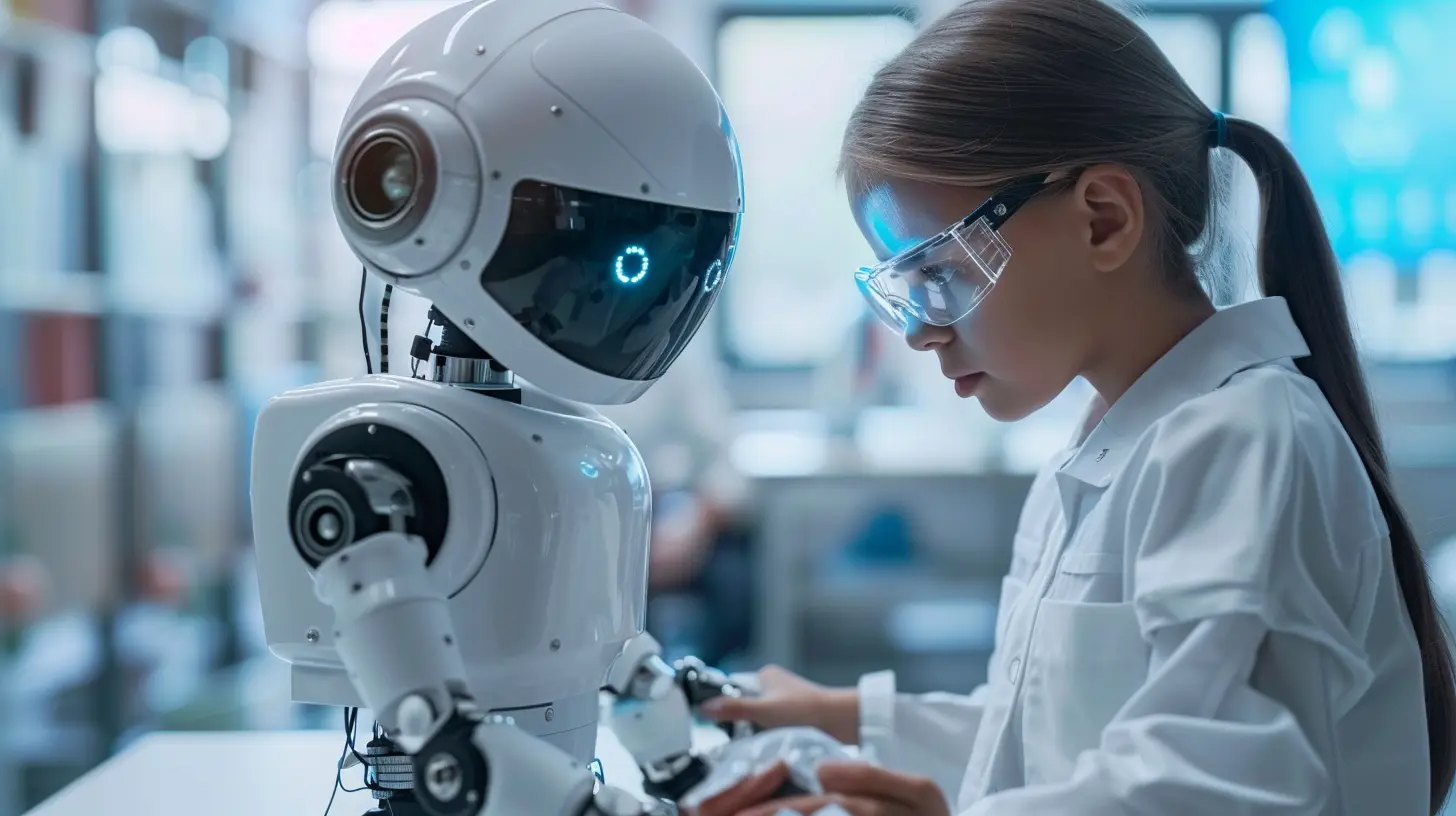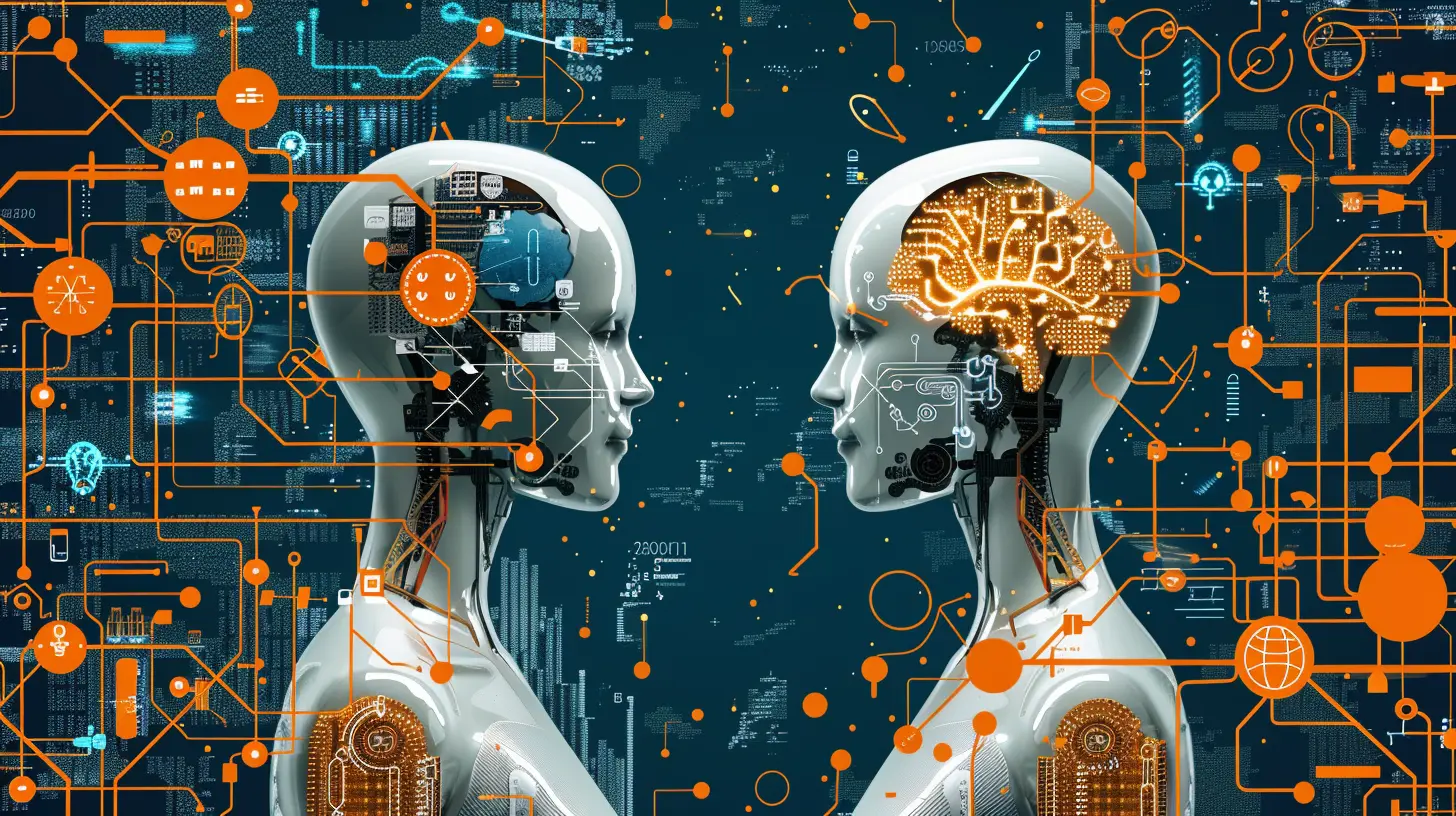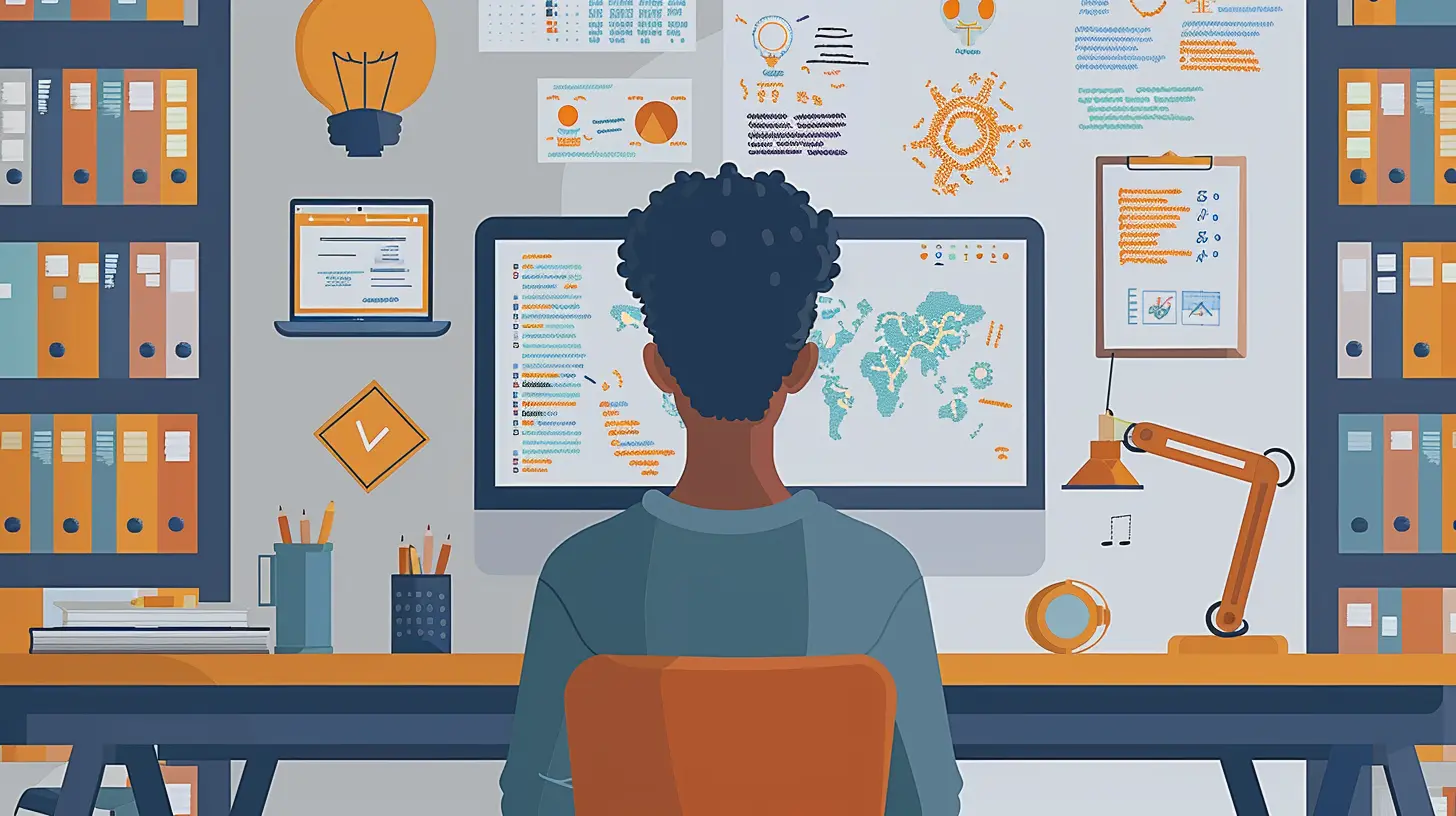The Role of AI Tutors in Supporting Personalized Instruction
24 November 2025
Education is evolving faster than ever, and with the rise of artificial intelligence, we’re entering an era where learning is more personalized, engaging, and effective. AI tutors are transforming the traditional classroom setting by offering customized support tailored to individual students’ needs. But how exactly do AI tutors enhance personalized instruction? Let’s dive in! 
The Changing Landscape of Education
Education has come a long way from the days of chalkboards and rote memorization. Today, classrooms are equipped with cutting-edge technology, and AI plays a crucial role in shaping how students learn. Traditional teaching often follows a one-size-fits-all approach, but in reality, every student learns at their own pace. Some grasp concepts quickly, while others need more time and practice.This is where AI tutors step in and bridge the gap. By analyzing student performance, identifying strengths and weaknesses, and tailoring lessons accordingly, AI is helping pave the way for a more personalized and effective learning experience. 
What Are AI Tutors?
AI tutors are intelligent systems designed to assist students in learning by providing real-time support, instant feedback, and adaptive instruction. These digital tutors use machine learning algorithms and data analytics to understand a student’s progress and offer customized guidance.Imagine having a tutor available 24/7 who never loses patience and always adapts to your learning speed. Sounds amazing, right? That’s exactly what AI tutors are doing—creating a learning environment where students receive individualized attention without needing an in-person tutor for every subject. 
How AI Tutors Support Personalized Instruction
1. Adapting to Each Student’s Learning Style
Not every student learns the same way. Some are visual learners, some prefer hands-on activities, and others learn best through reading and writing. AI tutors analyze student behavior and tailor lessons to fit their preferred learning styles.For instance, if a student struggles with a math problem, an AI tutor might present the explanation using a video, interactive simulation, or step-by-step text guide—whichever format the student responds to best.
2. Providing Instant Feedback
One major challenge in traditional education is delayed feedback. If students submit homework today, they might not receive corrections for a few days, and by that time, they might have forgotten how they arrived at their answers.AI tutors solve this problem by providing instant feedback. If a student makes a mistake, the AI immediately points it out and explains the correct solution. This immediate response not only reinforces learning but also helps prevent misconceptions from taking root.
3. Identifying Strengths and Weaknesses
AI-driven platforms assess student performance constantly. They track progress and pinpoint the topics where a student excels and the areas where they struggle.Think of it like a fitness tracker for learning. Just as a smartwatch monitors steps and heart rate to optimize workouts, AI tutors monitor student progress to help improve academic performance. If a student repeatedly struggles with fractions, the AI tutor will introduce more practice exercises and explanations on that topic until mastery is achieved.
4. Encouraging Self-Paced Learning
Not all students learn at the same pace, and that’s perfectly fine. Traditional classrooms often move forward based on a set curriculum, which can be frustrating for students who need more time on a subject.AI tutors allow self-paced learning, meaning students can take extra time on challenging topics and move quickly through material they already understand. This personalized approach boosts confidence, reduces stress, and creates a more enjoyable learning experience.
5. Enhancing Engagement Through Gamification
Let’s face it—students find it easier to stay engaged when learning feels like a game. AI tutors leverage gamification techniques by incorporating badges, points, challenges, and rewards to keep students motivated.Just imagine a student working through algebra problems in a quest format, unlocking achievements as they master each level. This keeps learning fun and encourages students to stay motivated, even with difficult subjects.
6. Bridging the Gap in Student-Teacher Ratios
Classrooms can be overcrowded, and teachers, despite their best efforts, may not always provide one-on-one attention to every student. AI tutors play a supportive role by assisting students with their doubts and reinforcing lessons outside school hours.While AI tutors don’t replace teachers, they act as valuable assistants, helping students reinforce what they’ve learned in class and ensuring they don’t fall behind.
7. Supporting Students with Special Needs
One of the most heartwarming aspects of AI tutors is their ability to support students with learning disabilities or special needs. Traditional teaching methods may not always cater to students with dyslexia, ADHD, or autism, but AI-powered learning platforms can adapt to their individual requirements.For instance, AI tutors can use speech-to-text technology to help students with dyslexia, provide visual aids for those who struggle with reading, or break lessons into shorter, more manageable sessions for students with attention difficulties. 
Challenges and Ethical Considerations
While AI tutors offer incredible benefits, they are not without challenges. Some concerns include:- Data Privacy: AI systems collect vast amounts of student data. Ensuring this data is protected and used ethically is crucial.
- Over-reliance on Technology: While AI can support learning, human interaction remains essential. A balanced approach where teachers and AI tutors work together is ideal.
- Accessibility: Not all students have access to AI-powered learning tools, which can widen the educational gap between privileged and underprivileged students.
Education systems must address these concerns to ensure AI tutors contribute positively to learning without creating new barriers.
The Future of AI Tutors in Education
The future of AI in education is exciting and limitless. As technology continues to advance, we can expect:- More Human-like Interactions: Future AI tutors might use natural language processing to engage in deeper, more meaningful conversations with students.
- Better Integration with Traditional Teaching: Instead of replacing teachers, AI tutors will work alongside them to create a hybrid learning model.
- Even More Personalization: AI systems will continue improving, offering hyper-personalized learning experiences tailored to every individual’s unique needs.
With AI’s rapid growth, we’re on the brink of an educational revolution—one where every student has the tools they need to succeed.
Final Thoughts
AI tutors are more than just a trend; they're a transformative force in modern education. By offering personalized instruction, instant feedback, adaptive learning, and engaging experiences, they empower students like never before.But the key takeaway? AI isn’t here to replace teachers—it’s here to support them. When used effectively, AI tutors can enhance learning, making education more inclusive, accessible, and student-friendly.
So, whether you're a student looking for extra help or an educator searching for innovative teaching tools, AI tutors might just be the game-changer you need!
all images in this post were generated using AI tools
Category:
Innovation In EducationAuthor:

Olivia Lewis
Discussion
rate this article
1 comments
Iliana Morris
Forget the wise old owl—now we’ve got AI tutors! They might not bring snacks, but they sure know how to customize a study plan. Who knew getting schooled could feel like a personalized Netflix binge? Just watch out for their 'recommendation algorithms!'”
December 1, 2025 at 4:05 AM

Olivia Lewis
Absolutely! AI tutors offer tailored learning experiences, making education more engaging and effective—just like your favorite binge-watching sessions!


